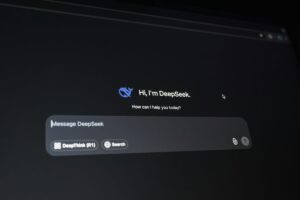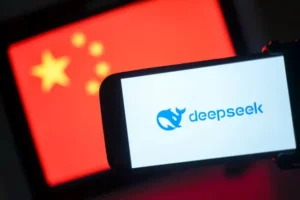Chinese General Agent ‘Manus’ Introduces ‘Future AI’ Aesthetic

Chinese AI Innovations: The Rise of Manus
Chinese researchers are making waves in the artificial intelligence (AI) sector with new developments, particularly highlighted by a startup named Monica.im. Recently, they launched Manus, a tool that aims to challenge existing offerings from Western competitors.
What is Manus?
Manus is marketed as a "general agent"—a multifunctional AI tool designed to enhance the capabilities of current AI services. This innovation is being compared to OpenAI’s Deep Research, which processes data from various online sources to generate comprehensive reports. Similarly, tools like Anthropic’s Computer Use API and OpenAI’s Operator Agents allow users to carry out straightforward tasks, such as filling forms or shopping online.
Key Features of Manus
According to its own benchmarks, Manus seems to operate efficiently, potentially faster than its Western counterparts. A launch video demonstrates its capabilities with impressive speed in three specific tasks:
Job Application Analysis: Manus can analyze job applications, rank candidates, and present the analysis both in a written report and a spreadsheet format.
Real Estate Reports: Users can provide their budget and preferences, and Manus generates a report on available properties, including local amenities.
- Stock Correlation Analysis: The AI can perform correlation analyses of various stocks, draft a comprehensive report, and create an interactive website featuring scraped data.
Users interact with Manus through a familiar chatbot interface, where they can type prompts into a text field. Early users have reported that using Manus feels like having an assistant who translates vague requests into precise outputs quickly and efficiently.
How Manus Functions
Manus operates through what its developers call “Manus’s computer,” which appears to be a cloud-based Ubuntu workstation. The service employs a multi-agent system powered by various models, with some components planned for open sourcing later in the year.
Demos on the official Manus website show the software executing its own commands, accessing numerous websites, and delivering documents along with the source code used to create them.
User Experience and Criticism
Despite its impressive capabilities, some critiques have arisen. Reports highlight instances where Manus’s outputs have been unsatisfactory. For example, one demonstration of a Mario-style platformer game resulted in a subpar experience, causing it to crash. Also, during a proposed two-month trip itinerary across different countries, the output included questionable suggestions and a misleading assessment of travel costs.
Nevertheless, many testers have praised Manus for its speed and efficiency. Some have reported the ability to open up to 50 browser windows simultaneously to gather extensive data, analyzing it at remarkable speed. Developers have noted its programming capabilities as well, further highlighting its versatility.
The Path to Artificial General Intelligence
The ambitious term “general agent” used by Monica.im has sparked discussions around whether Manus is a step toward achieving artificial general intelligence (AGI), which refers to AI systems capable of performing tasks with human-like skills.
Comparisons with Previous Startups
Observations have been made linking Manus to another Chinese AI startup, DeepSeek, which previously generated significant attention. Although DeepSeek initially appeared to be a competitor with less hardware demand, later evaluations revealed issues such as security vulnerabilities and exaggerated claims regarding its efficiency.
Investors initially panicked as they speculated that Chinese AI firms might surpass their Western rivals, especially with concerns about infrastructure investments. However, such concerns have subsided as it became apparent that discrepancies existed within the promises made by these technologies and their actual performances.
Future Insights
Companies focusing on AI infrastructure have reassured stakeholders, indicating they are improving systems for inference in applications. With rapid advancements, tools like Manus could play a significant role in the future of artificial intelligence. As more information becomes available, future evaluations of Manus will determine its place in the evolving landscape of AI technologies.



